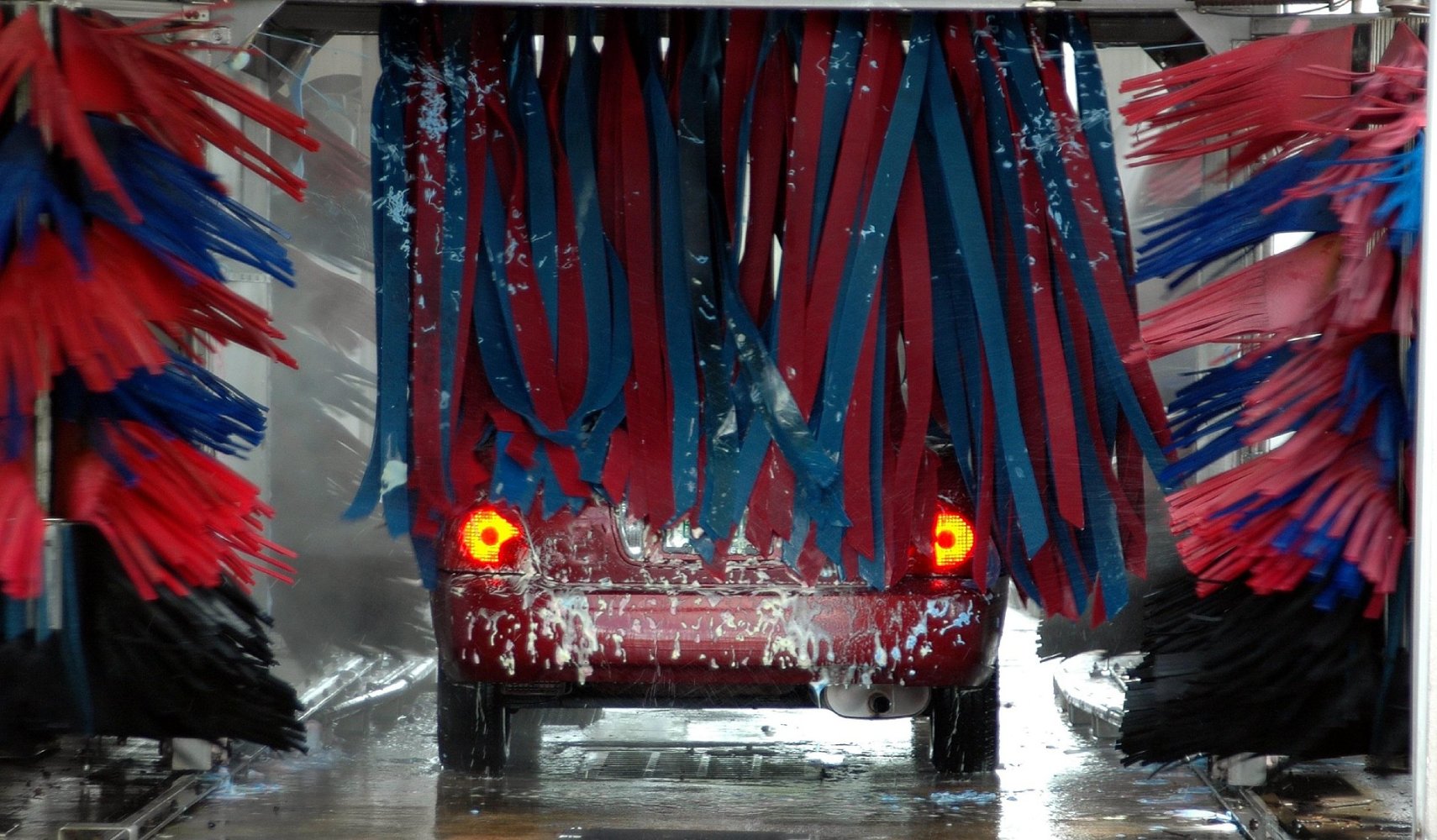How to make sure your car wash is eco-friendly
Wash your car while limiting environmental risks

Owning and maintaining a car has environmental impacts, so you’ve probably wondered about the best way to give your vehicle an eco-friendly car wash. Before you grab your bucket and sponge, you should know that the most environmentally friendly way to clean your car is by taking it to a commercial car wash.
The truth is, washing personal vehicles at home is one of the most environmentally harmful chores we can do! When you wash your car at home, pollutants like oil, grease, dirt, and cleaners come off in the rinse water and can enter the storm drain. Those pollutants then flow into local rivers, lakes, and streams. To protect the health of our waterways, we strongly recommend skipping the at-home wash and taking your vehicle to a local commercial car wash.
Commercial car washes use water efficiently and safely
Federal laws in the U.S. require commercial car wash facilities to drain wastewater from car washing into sewer systems. The water then gets treated and filtered before it’s discharged.
In contrast, washing your car at home allows the polluted and untreated water to make it into our waterways, where it can harm wildlife and destroy sensitive ecosystems.
Washing at home also typically uses more water than an automatic car wash. Commercial car washes use high-pressure water nozzles that use water more efficiently than a standard garden hose, and many commercial car washing facilities recycle the wastewater that is collected in drains.
Keep it green at home
If you do wash your car at home, follow these tips to protect the environment and keep hazardous chemicals out of our region’s waterways:
- Car washing must be done on either grass or gravel-covered areas. This allows the rinse water to soak into the ground rather than entering the storm drain system.
- Before washing, make sure your car isn’t leaking oil or other fluids.
- Choose a non-toxic, biodegradable soap that is free of phosphates, fragrance, chlorine, and petroleum-based ingredients.
- Don't pour your bucket of dirty water onto your driveway, sidewalk, or street. It is illegal for anything other than rainwater or snowmelt to go down a storm drain. Instead, take it inside and dump it in a sink or toilet.
- Don’t leave the hose running while you’re soaping up and washing the car. Try to rinse quickly.
- Use reusable cloths to wash and dry your car.
Fundraising
If you’re thinking about planning a car wash fundraiser, consider partnering with a local professional car washer. By selling tickets that are redeemable at commercial car washes, you can raise money while still protecting our waterways.

 Translate
Translate